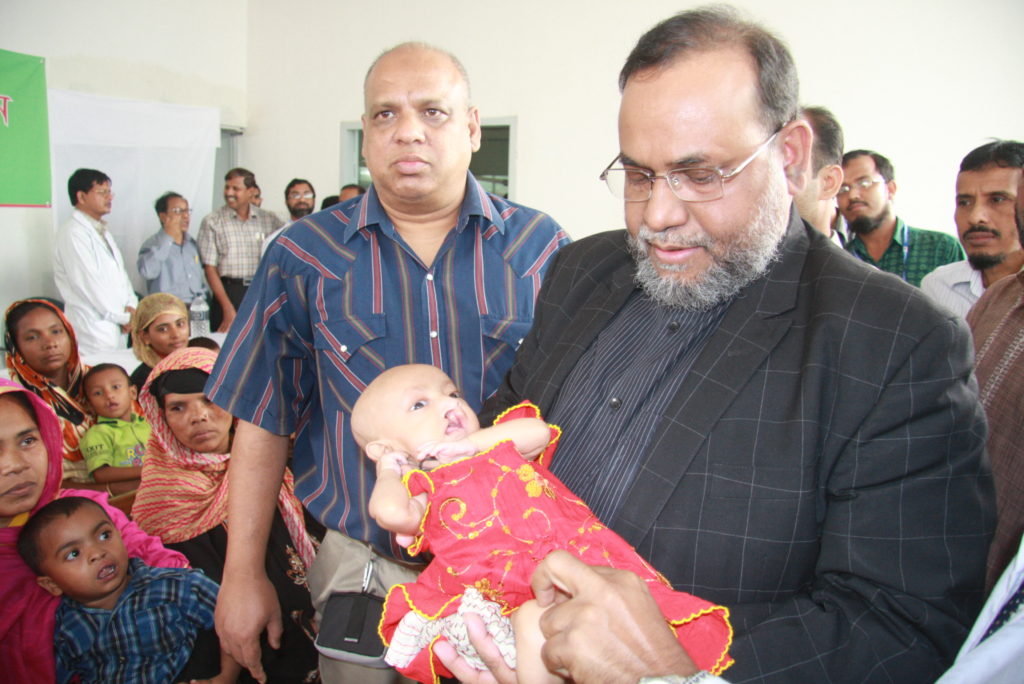Free Mir Quasem Ali

Who is Mir Quasem Ali??
Mir Quasem Ali is one of the iconic personality in Bangladesh politics, a renowned politician, a successful business tycoon, and pioneer is social entrepreneurship in Bangladesh and an avid philanthropist. Mir Quasem Ali is the Chief Executive of the Diganta Media Corporation Limited (the company which owns the Daily Naya Diganta newspaper and thee TV station Diganta TV, ‘DTV’). He is the Founding president of Bangladesh Islami Chatra Shibir established in 1976, the Largest Student Organization of Bangladesh. He joined Bangladesh Jamaat-e-Islami in 1979 and was serving as Member, Executive Committee, Bangladesh Jamaat-e-Islami during his arrest. He is one of the key policy makers of the largest Islamic Party in Bangladesh, particularly on Issues such as International Relations, Commerce and Industry, Philanthropy and Mass Media and Broadcasting.

Foreign Ventures
He is entrusted by Bangladesh Jamaat-e-islami for maintaining relationship with International Community and he is a senior policy maker in formulating Foreign Policy of Bangladesh Jamaat-e-Islami.
Visits to USA:
He has visited State Department in Washington several times and met with senior policy analysts there. He met with several members of the Senate and Congress and took part in policy discourse with them over issues regarding Bangladesh, Democracy, security and stability issues of the region. He took part in policy discussions with NDI and IRI and several other leading Think tanks in USA.
He is also working closely with several News and Mass media enterprises in USA. He has taken initiatives to forge a bond of cooperation between US based media houses and Bangladesh Journalists in order to work together to strengthen Press Freedom and Media ethics in Bangladesh. He has initiated the process of forming Media Product sharing initiatives between USA and Bangladesh so as to ensure exchange of expertise and technical know-how from USA and exchange of rich culture and friendship from Bangladesh.
Visits to UK and Europe:
He represented Bangladesh Jamaat-e-islami in several meetings with UK MPs and EU Officials.
He is in process of initiating a joint cooperation program with European media houses and Bangladesh Journalists. He nurtures the vision of European-Bangladesh partnership in ensuring Press Freedom and People’s right to information in Bangladesh and in the region as whole.
Visits to Middle East:
He maintains close relation with the civil society of the major Arab states. He is the pioneer in bringing together Arab-Bangladesh mass media cooperation and is in the process of initiating joint training and cooperation programs with the vision of strengthening Press Freedom in the region.
Mr. Mir Quasem Ali also visited the following countries on business purpose and for attending international seminars:
Saudi Arabia, Pakistan, India, Nepal, Maldives, Sri Lanka, Somalia, Malaysia, Indonesia, Myanmar, Thailand, China, Hong Kong, Singapore, Japan, South Korea, Australia, Turkey, UAE, Lebanon, United Kingdom, Kenya, South Africa, USA, Canada, France, Italy, Germany, Sweden, Netherlands etc.
Contribution in Mass media and Broadcasting
Chairman (Management Committee), Diganta Media Corporation. This is a media house, which owns One Satellite TV Station, One Bangla Language National Daily News Paper, and Two Monthly Magazines. One FM Radio station, one English language National Daily, One 24 hour web based news portal both in Bangla and English will be launched soon.
Senior Vice President, Allama iqbal Trust. This trust is dedicated on development of literature of aesthetic merit.
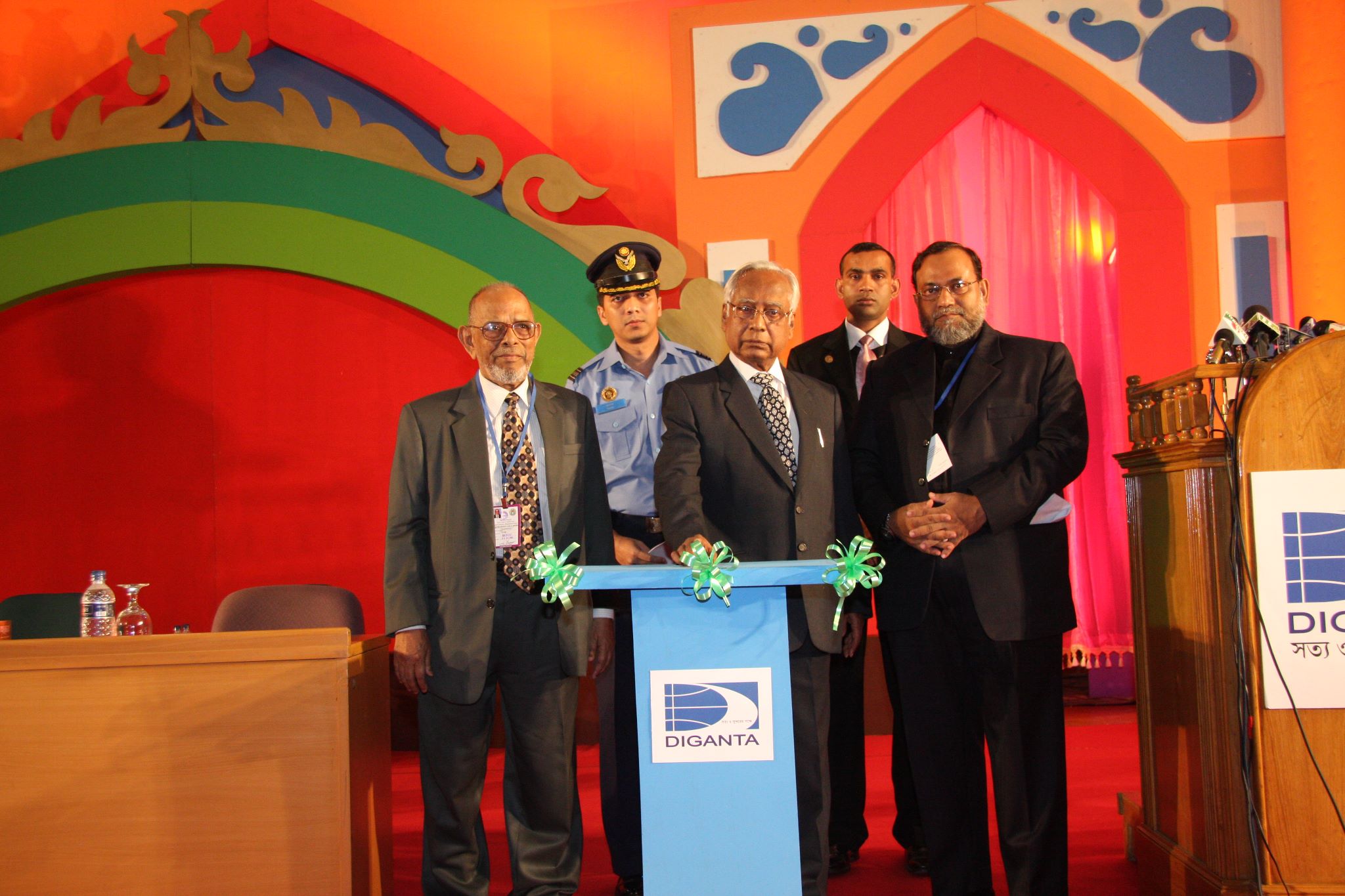
Contribution to The Society
Mir Quasem Ali is the founder of more than 15 Hospitals, 10 Schools and helped build many orphanages, Women Shelter & Rehabilitation Centre, Free medical centers and Mosques.
Islami Bank Bangladesh Limited:
This is the biggest Private bank in Bangladesh which introduced Islamic banking and financing to the people of Bangladesh. He is one of the Founder and Visionary behind the success of Islami Bank. He was the Chairman of the Executive Committee for 12 years and Vice-Chairman for 4 years. Under his leadership Islami Bank became the first public listed bank in Bangladesh. Islami Bank is the highest tax and VAT paying bank in Bangladesh and the second highest tax paying corporation in the ranking of all corporations in Bangladesh both national and multi-nationals combined.
Founding Trusty and Member responsible for Administration, Islami Bank Foundation:
This Foundation is a sister concern of Islami Bank Bangladesh Ltd, it runs more than 15 Hospitals and more that 50 Hospitals are under Construction; these hospitals provide Health Care at cost price affordable for the majority of the population. , One English Medium School, One Medical College, One Rehabilitation Centre for deprived women One Language Learning Centre and Lends interest free loans for SMEs and 49 projects aimed at poverty eradication.
Islamic Economic Research Bureau: One of the biggest think tanks of Bangladesh on Commerce and Economics. He was the Chairman and currently he serves as a Trustee of the Board of Trustees of the Organizations.
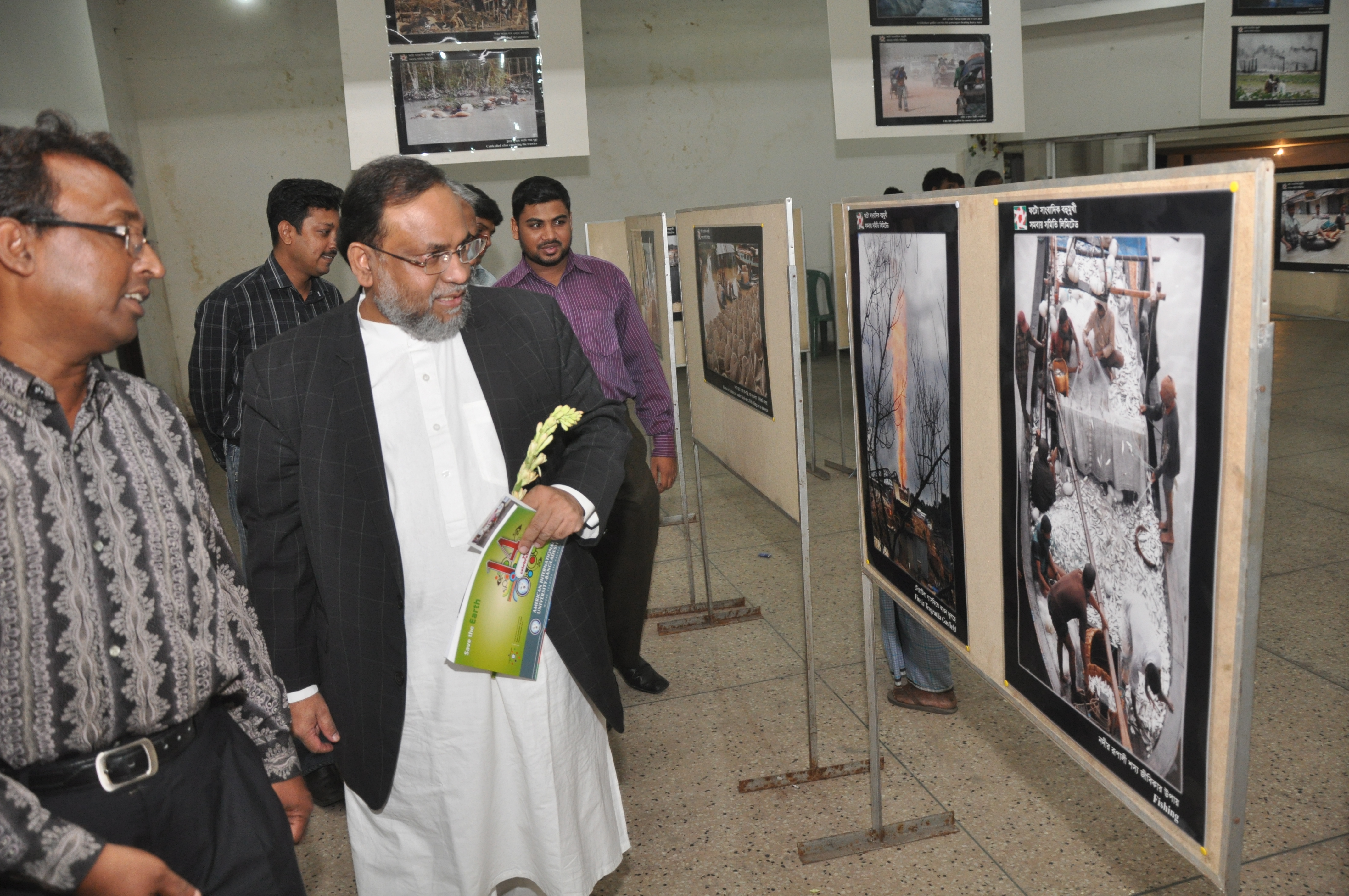
Founding Trusty and Member responsible for Administration, Ibn Sina Trust: This trust runs 4 Specialized Hospitals, One Medical College, and 5 Diagnostic Laboratories; Ibn Sina Trust was first private healthcare provider offering whole range of Health Care Services.
100% profit is plowed back for Humanitarian Causes. Trust also runs 11 other community service projects.
Director (Marketing), Ibn Sina Pharmaceutical Industry: One of the first Pharmaceutical industries in Bangladesh, holding nearly 10% of the Market share. Pharmaceutical is the 2nd biggest export sector in Bangladesh.
Chairman, Association of Multipurpose Welfare Agencies of Bangladesh: This is the biggest Association of Bangladeshi NGOs.
Vice- Chairman, Industrialists’ and Businessmen Welfare Foundation: A global forum for Businessmen and Industrialists of Bangladeshi Origin. Currently it has representation from 20 countries.
Chairman, Keari Limited: This is a group of Companies which includes Real State De- velopment, Poultry and Tourism. This company was the first to launch ocean going luxury Tourists’ Liner in Bangladesh. Now it operates two such ships.
Senior Vice President, Allama Iqbal Trust: This trust is dedicated on development of literature of aesthetic merit.
Trusty (Responsible for Administration): Fouad Al Khateeb Charity Foundation. This trust runs 10 charitable community services projects.
Foreign Ventures
He is entrusted by Bangladesh Jamaat-e-islami for maintaining relationship with International Community and he is a senior policy maker in formulating Foreign Policy of Bangladesh Jamaat-e-Islami.
Visits to USA:
He has visited State Department in Washington several times and met with senior policy analysts there. He met with several members of the Senate and Congress and took part in policy discourse with them over issues regarding Bangladesh, Democracy, security and stability issues of the region. He took part in policy discussions with NDI and IRI and several other leading Think tanks in USA.
He is also working closely with several News and Mass media enterprises in USA. He has taken initiatives to forge a bond of cooperation between US based media houses and Bangladesh Journalists in order to work together to strengthen Press Freedom and Media ethics in Bangladesh. He has initiated the process of forming Media Product sharing initiatives between USA and Bangladesh so as to ensure exchange of expertise and technical know-how from USA and exchange of rich culture and friendship from Bangladesh.
Visits to UK and Europe:
He represented Bangladesh Jamaat-e-islami in several meetings with UK MPs and EU Officials.
He is in process of initiating a joint cooperation program with European media houses and Bangladesh Journalists. He nurtures the vision of European-Bangladesh partnership in ensuring Press Freedom and People’s right to information in Bangladesh and in the region as whole.
Visits to Middle East:
He maintains close relation with the civil society of the major Arab states. He is the pioneer in bringing together Arab-Bangladesh mass media cooperation and is in the process of initiating joint training and cooperation programs with the vision of strengthening Press Freedom in the region.
Mr. Mir Quasem Ali also visited the following countries on business purpose and for attending international seminars:
Saudi Arabia, Pakistan, India, Nepal, Maldives, Sri Lanka, Somalia, Malaysia, Indonesia, Myanmar, Thailand, China, Hong Kong, Singapore, Japan, South Korea, Australia, Turkey, UAE, Lebanon, United Kingdom, Kenya, South Africa, USA, Canada, France, Italy, Germany, Sweden, Netherlands etc.
Persecution by the government
He was arrested on 17th June 2012 for alleged offences allegedly committed during the 1971 Bangladesh War of Liberation. He was arrested from the headquarters of the daily newspaper.
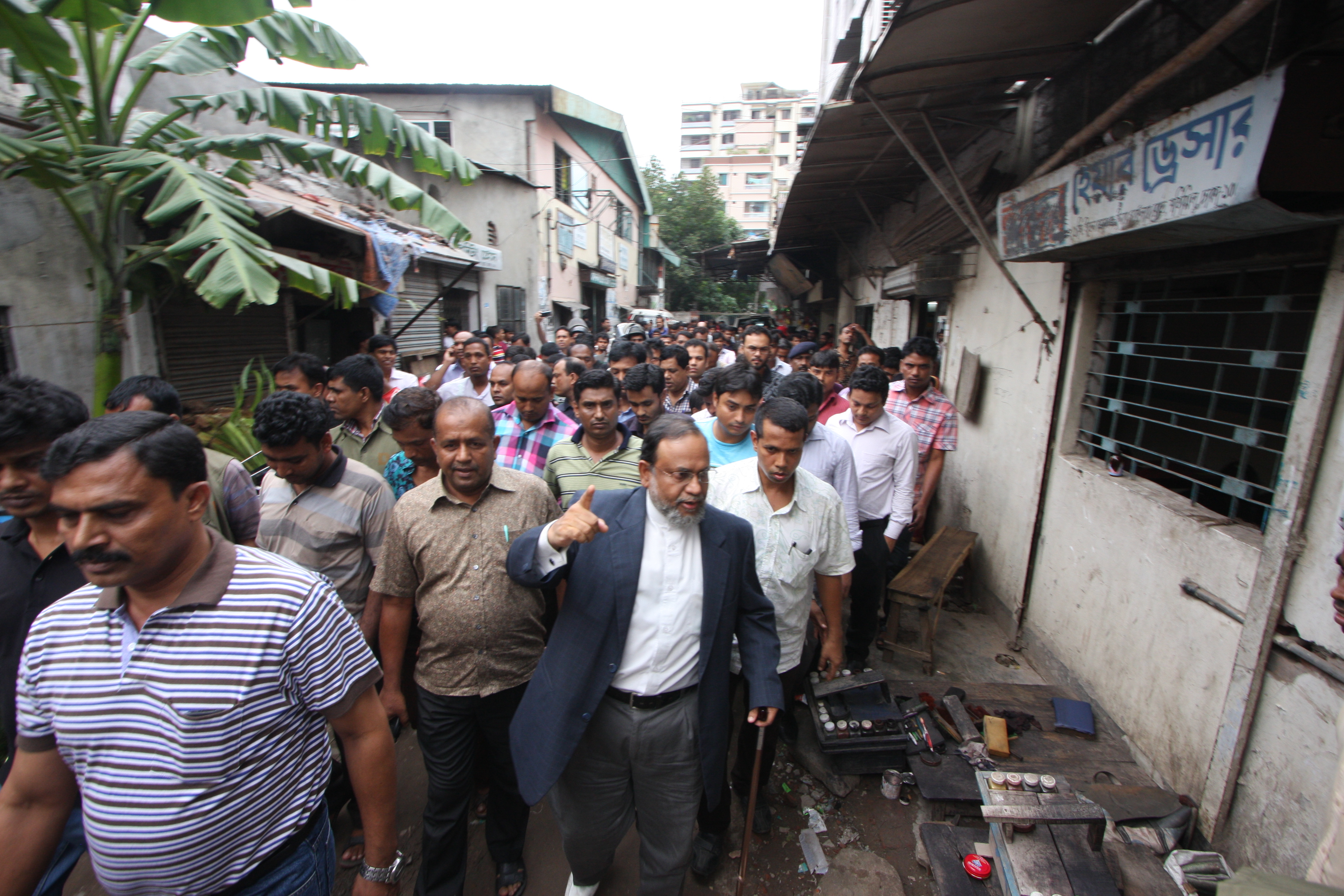
Harassment before arrest
Although arrested in June 2012, the government started harassing Mir Quasem Ali since 2010 since his media houses had been very critical to the government from very beginning.
Banned from traveling abroad
On 25th March 2010, Mir Quasem Ali travelled to Saudi Arabia and United States for business purposes. On the same day, the Bangladesh Government established the International Crimes Tribunal. Few partisan media outlets started reporting that Mir Quasem Ali had fled the country. However, on May 2010 he returned to Bangladesh. Since then he has been prevented from travelling outside the country.
Bank Accounts Frozen
On 30th March 2010, while Mir Quasem Ali was travelling abroad, Bangladesh Bank froze all the bank accounts of Mir Quasem Ali and his family members. No transactions are being allowed in those bank accounts till date.
Harassment to family members
The government and the law enforcement authorities were particularly harsh on the family members of Mir Quasem Ali. His family members bank account were also froze with him since 2010 and they are put in black list for any bank transactions till this date.
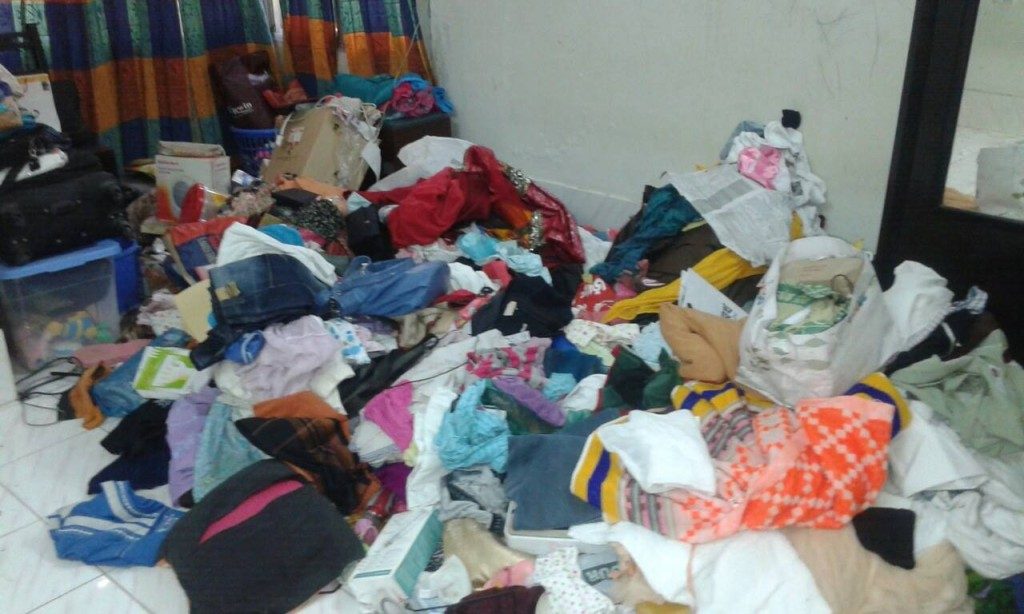
His home was raided and rampaged by police on several occasions since his arrest.
(http://progressbangladesh.com/home-of-mir-quasem-ali-raided-ransacked/ )
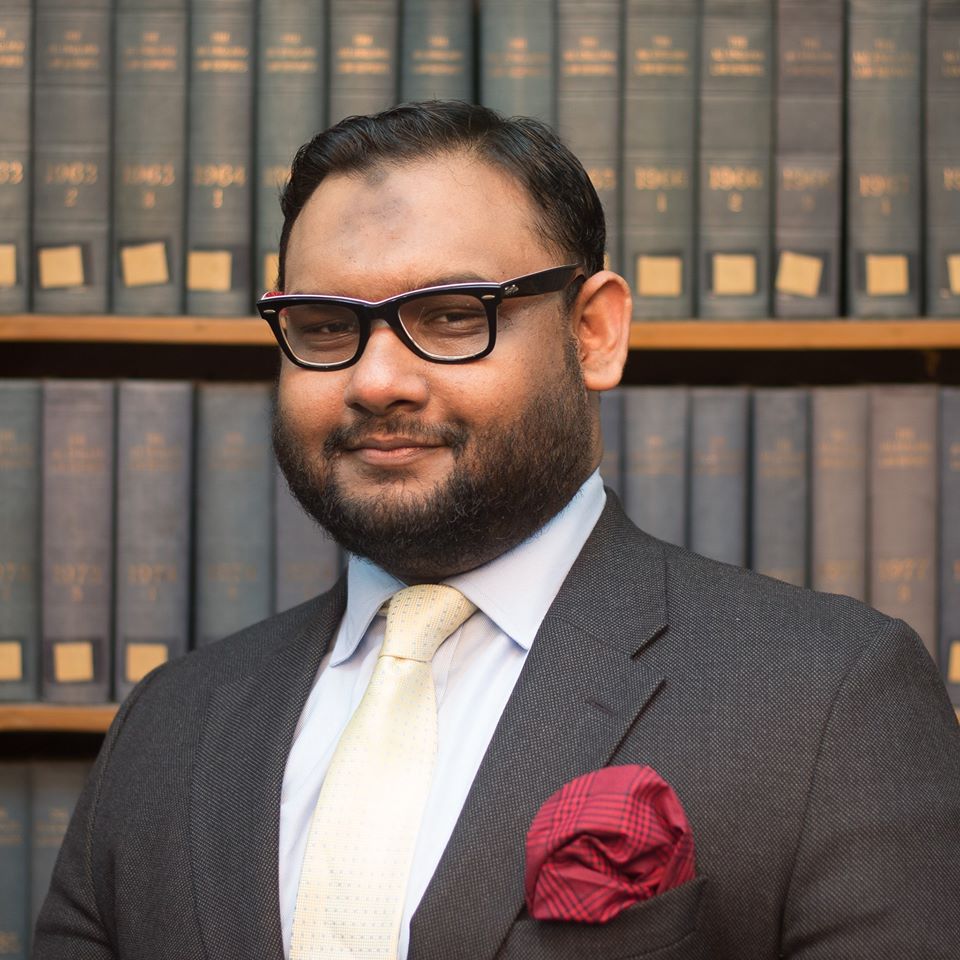
Family also fears for the fate of Mir Ahmed Bin Quasem, Quasem Ali’s son and a member of his legal defence team. Mir Ahmed Bin Quasem was arrested without a warrant by men in plainclothes on 9 August. He has been held incommunicado ever since, and has not been charged with any crime.
Allegations and Refutation
Prosecution pressed 14 charges of Crime Against Humanity against Mir Quasem Ali, all allegedly committed between 8th November 1971 and 16th December 1971 in Chittagong. But the Prosecution Documents (news reports of the daily newspapers of November and December 1971) show that he was in Dhaka, i.e. 250 km away from Chittagong, during this entire period when the communications between these two cities were very bad due to the ongoing war. He was not allowed minimum opportunity to defend these allegations.
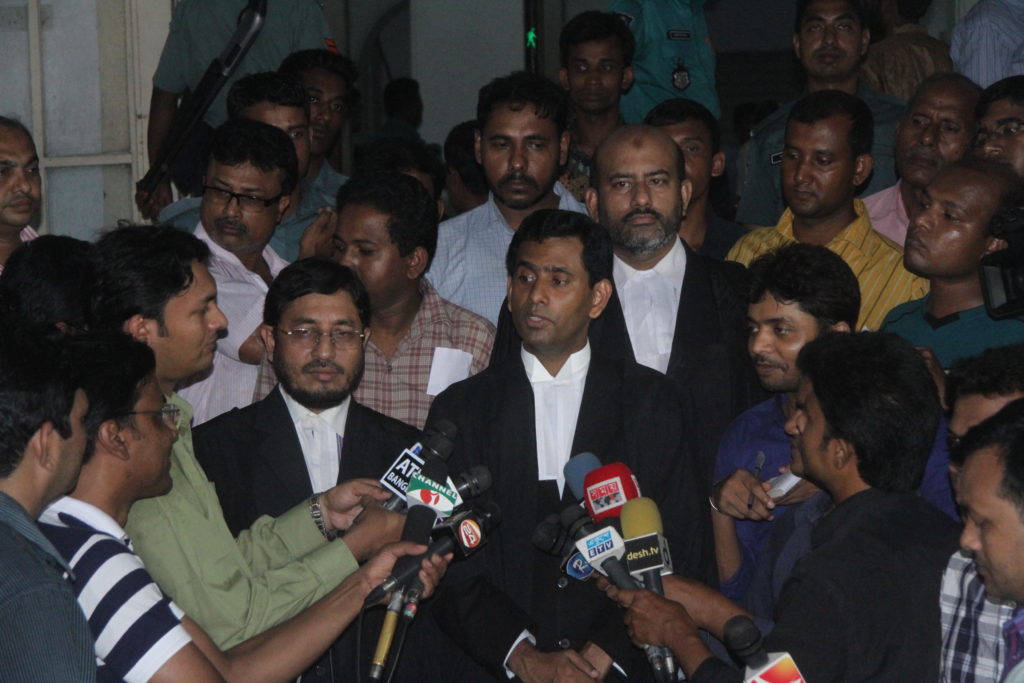
The Tribunal never put any restriction on the number of the prosecution witnesses and despite that the prosecution could only produced 24 witnesses. All these witnesses were tutored and admitted that they did not bring any allegation against Mir Quasem Ali in the last 40 years. His counsels were not allowed to cross examine the prosecution witnesses on their previous inconsistent statements made to the Investigation Officer during investigation stage. The prosecution case was allowed to continue for five (5) months from 18.11.2013 to 17.04.2014. On the other hand defence was only allowed 3 witnesses despite their willingness to produce at least 20 defence witnesses. The defence case commenced on 22.04.2014 and the Tribunal forcibly closed the defence case on the very next day i.e. on 23.04.2014. Among the 3 defence witnesses two were veteran Freedom Fighters of Chittagong who testified about Mir Quasem Ali’s innocence. Despite Mir Quasem Ali’s willingness to testify, the Tribunal did not allow him to say anything in his defence. The Tribunal also rejected his application to produce relevant documents to support his defence.
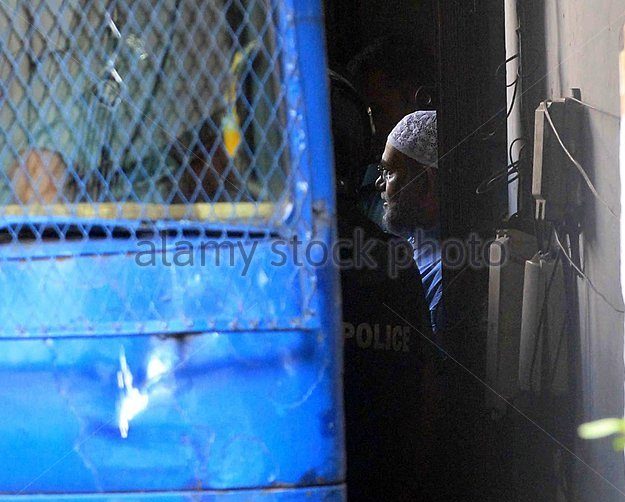
Mir Quasem Ali has not been implicated by anyone in any crime for last 40 years. The ruling regime created trumped charges against him with the sole purpose of political vindication for his efforts to expose the corruption and crimes of this current regime through his media houses. He was not given minimum opportunity to defend the charges brought against him.
Global Condemnation after arrest
Mir Quasem Ali renowned for successful endeavors in Mass Media in Bangladesh, has been arrested on alleged offence committed 40 years ago when he was of 18 years only (Mir Quasem Ali’s date of birth 30.12.1952). The International Community has been outspoken in condemning his arrest. Several instances are referred below:
United States Congress
Congressman Joe Wilson of South Carolina has called for justice for Mir Quasem Ali in his speech in the House of Representatives (US Congress, June 28, 2012). Hon. Wilson, a Member of the House Foreign Affairs Committee, Subcommittee on the Middle East and South Asia stated that Mir Quasem Ali is the owner of the largest opposition-run media outlet which has openly raised criticism against the Tribunal as well as against the ruling government at-large. He stressed his concern “that his [Mir Quasem Ali’s] arrest and ongoing detention may represent a thinly-veiled attempt by the ruling government of Bangladesh to silence its opponents and critics.” He also stated that the International Crimes Tribunal of Bangladesh “is inherently flawed and lacks compliance with international standards” and “it appears that the Tribunal is international in name only, as it lacks international oversight or involvement, experienced foreign attorneys have been banned from participating, and the Tribunal violates at least two of Bangladesh’s international treaty obligations.”
Britain’s House of Lords
On 9th October 2012, Baroness Sal Brinton of Liberal Democrat Party in a debate on “Bangladesh: Human Rights” at the House of Lords said “….More recently, and perhaps more worryingly, when Sheikh Hasina was being feted in the UK during the Olympics, she had ordered the arrest of Mir Quasem Ali, a leading member of the Islamist party Jamaat-e-Islami, who is well known both as a politician and through his ability to reach people through the Jamaat newspaper and media group. It appears that his real crime has been to criticise the war crimes tribunal set up by Hasina, which seems to take a very retributional approach rather than the justice and reconciliation……”
Lord Carlile of Berriew
On 25th November 2012, Britain’s Lord Carlile of Berriew in a Press Statement voiced disappointment on the injustice over Mir Quasem Ali. Lord Carlile, in his statement highlighted inter alia that “-The arrest of Mir Quasem Ali, a leading member of the Islamist party Jamaat-e-Islami and the owner and director of newspaper and media group Diganta Media, whose only crime appeared to have been the apparent criticism of the Tribunal set up by Prime Minister Sheikh Hasina”
International Press
The International media in one voice raised concerns and condemned the arrest of Mir Quasem Ali. Some of these are referred below:
- Reporters Without Borders, 18th June 2012.
- Elliot Wilson of The Spectator 13th September 2012.
- Jolyon Rubinstein of BBC3 on 12th November 2012.
- Dr Ali Al-Ghamdi in Saudi Gazette on 5th December 2012 .
- Bill Lambrecht in St. Louis Post-Dispatch on 22nd November 2012
‘Treasurer’ of Jamaat , ‘International Campaigner’ and Influential with ‘Rohingyas’
The Prosecutors made no attempts to hide the fact that they were after Mir Quasem Ali mainly for reasons NOT relating to atrocities committed in 1971. The Prosecutor Zead-Al Malum submitted in the Tribunal opposing prayer for bail that:
“Quasem as the Treasurer of Jamaat-e-Islami and director of all institution of Jamaat was involved in an international campaign against the Tribunal..”
Being ‘Treasurer’ of Jamaat is not a ‘crime against humanity’ and is not a ground which can justify the order of arrest. International campaign is not an act of crime nor does it comes with in the jurisdiction of the International Crimes Tribunal. All these shows that the real intentional and motive behind arrest and prosecution of Mir Quasem Ali was to prevent him and his media outlets from exposing the illegalities of the Tribunal
Prosecutor Malum further stated that Mir Quasem Ali is influential with the Rohingyas and might instigate unrest in that region. It is difficult to believe, how this ‘Rohingya’ issue can be at all relevant with the proceedings and jurisdiction of the International Crimes Tribunal.
How biased and politicized was the court?
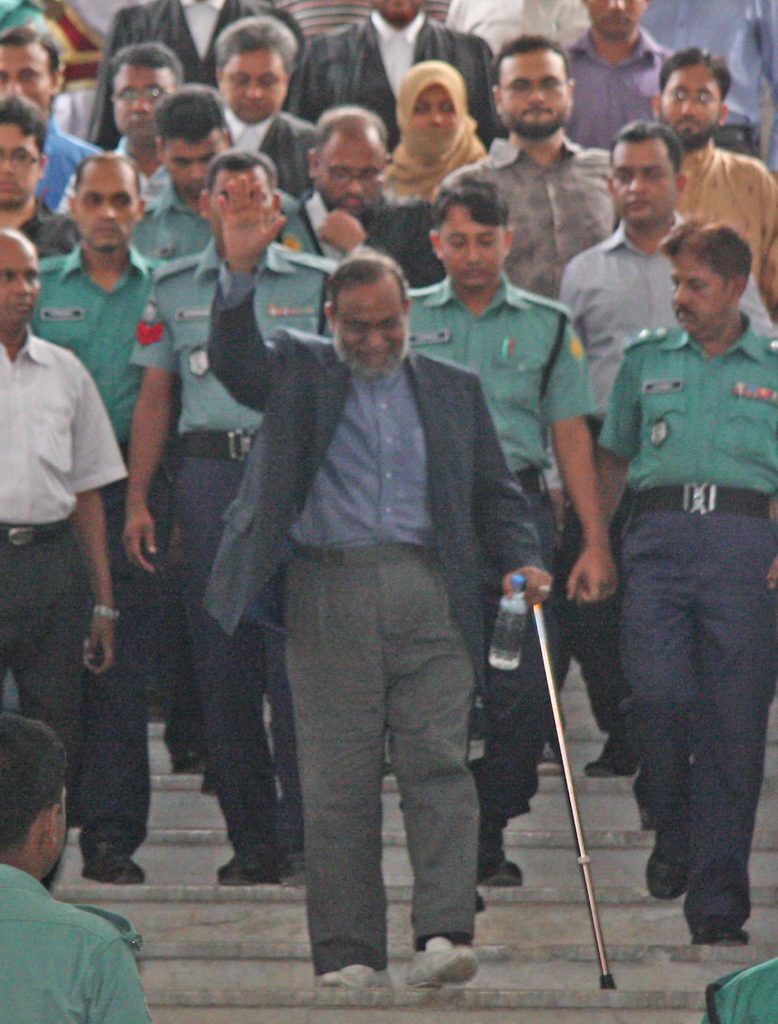
The sole purpose of the special tribunal, supposedly set up to deal with “Crimes against Humanity” during 1971 war, is to persecute the top Jamaat-e-Islami leadership. That is why the Awami League government was not particularly interested in maintaining any standards in setting up the courts, passing legislations for such courts, or proceeding with the trials. Since the people of Bangladesh are very sensitive and emotional regarding 1971 Independence War, it is very easy for a Third-World government to dumb down the historical intricacies and treat everyone who opposed independence as criminals. That’s the chance the Awami League government took. And with the help of a spineless judiciary, they are set to achieve their goal of silencing their most effective political opponent. It was absolutely clear, from the very beginning, that these courts are merely kangaroo courts, where standards of law and justice are blatantly disregarded and the verdicts have already been decided before the trials have begun. Several key incidents made this obvious:
1. As revealed in #SkypeGate, the judges of this mockery of justice were directed by Ziauddin Ahmed, a member of a notorious anti-Jamaat group. He was not an official of the court and yet, like a Czar, he controlled every aspect of the tribunal. On many occasions, he has written orders that were handed down by the court as-is. He has also designed a guideline for the judges and a basic structure for all the verdicts to come, way before the trials completed.
2. A number of the Tribunal members participated in the so called Gana Adalat Commission (or People’s Court) that prejudged these cases in the early 1990s. Indeed the former Chairman of the Tribunal is listed as a member of the Secretariat of the Commission.
3. There was clear evidence of collusion between the Tribunal, the prosecution, and members of an anti-Jamaat organization during the trial process. The prosecutor and judges would meet regularly in secret and decide how they would act in unison against the defence.
4. Former Chairmen of the ICT-1, Justice Nizamul Huq, admitted that a state minister, Quamrul Islam, pressured him for quick verdicts and a judge of the Appellate Division of the Supreme Court, Justice SK Sinha, offered him promotion in return.
5. On several occasions, the judges declared that they have a particular view of the events of 1971 and they would never change that view irrespective of whatever evidence or witness testimony are presented before them.
6. In cases where they felt that the state’s accusations are not enough to convict a defendant,the judges added extra accusations themselves out of the blue, or advised the prosecution team to strengthen their charges so that it’s easier for them to convict the accused. The accused has to be convicted, no matter how. For example, in Mr Kamaruzzaman’s case the judges refused to accept the charges against him twice because the charges were not strong enough to convict him. Even after accepting the state’s formal charge, the judges in their final verdict added two more charges of their own, of which Kamaruzzaman was not accused.
Such is the political commitment of the court.

How fair was the trial?
The trial was a sham. The International community, legal experts, authorities, the United Nations, and human rights groups have expressed their concerns regarding the Tribunal and criticised it for blatantly disregarding fair trial standards. The international community has also criticised the law governing the Tribunal, ICTA 1973, for being far below any national or international standards. Apart from the law being substandard and mean towards the defendants, the Tribunal itself was deliberately unfair, which became clear during the trial proceeding:
1. As with all other cases before the Tribunals, there was clear evidence of collusion between the Tribunal, the prosecution, and members of an anti-Jamaat organization during the trial process. The law minister and the prosecutors have regular “strategy meetings” with the judges in secret, which is inappropriate and unfair.
2. Emails revealed during the “Skypegate” or “Skype Scandal” suggest that many orders of the court, including the cognisance of the false charges against Kamaruzzaman, was written by Ziauddind Ahmed, an outsider of the court whose role in the tribunal was kept secret by the government from the public. Later findings suggest that the Ministry of Law was also involved in writing orders that were handed down by the courts.
3. The defence efforts were severely damaged when the tribunal decided to limit the number of defence witnesses. The defence lawyers were allowed to present only 5 witnesses in defence of 7 charges. In comparison, the prosecution was allowed to present an unlimited number of witnesses at any stage of the trial and ended up producing 18. When the defence asked for the same facility, they were denied.
4. The defence were also not allowed to produce some crucial evidence before the court.Those evidences include the proof of extortion, abuse of power, blackmailing, and forgery used by the state to manipulate the evidences they submitted and the witnesses they presented. Some of the evidences that proof innocence of the defendant were also not allowed to be presented. In comparison, the prosecution were allowed to produce an unlimited number of unrelated things as evidence at any stage of the trial. They were even allowed to refer to hearsay and propaganda materials as evidence.
5. The pride of Bangladesh’s legal system, the CrPC Act of 1898 (Code of Criminal Procedure) – the meticulous legal procedure through which an evidence or a witness must go through to prove credibility before the court, was completely ignored to allow the prosecution to present false evidences and shoddy shady witnesses.
6. The defence were not allowed to recall the state’s Investigation Officer (IO) to question about contradictions even after repeated requests and written applications from the defence counsels. As a result, the sheer volume of inconsistencies between witness testimony and IO’s account remains completely unresolved and unanswered in this case.
7. The defence were not allowed to effectively cross examine prosecution witnesses, when such questioning adversely affected witness credibility. Moreover, the judges intervened regularly to sabotage cross examination by the defence.
8. The defence were not allowed to appeal against interlocutory orders given by the tribunal to any higher authority/court. This means that, although the final judgment of the tribunal could be challenged at the Appellate Division of the Supreme Court, the defence could not appeal against other orders passed by the court – which is a violation of state’s own legal standards. For example, though the limitation of defence witnesses and not being able to cross-examine the IO was particularly damaging to the accused, the defence was not allowed to appeal against such damaging orders.
9. Each and every review petition that was submitted by the defence was discarded without giving a second thought. Furthermore, the so called “review” was done by the same judges who gave the order in the first place.
There is no court in the world that is remotely concerned with delivering justice would be so blind, unfair, and politically biased.
